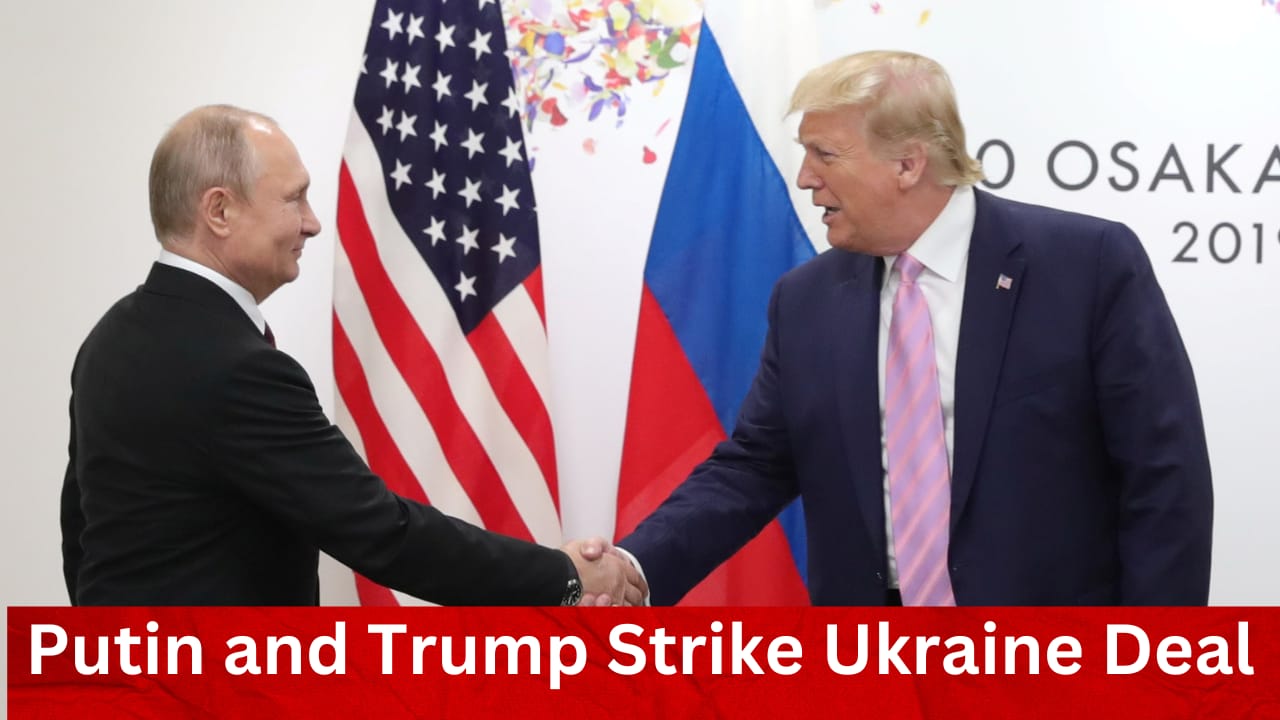Discover how Putin and Trump agreed on Ukraine peace talks in February 2025, sidelining Xi Jinping. Get the latest on this trending geopolitical shift, implications, and more!
Background and Context
In February 2025, the ongoing war in Ukraine, which began with Russia’s invasion in 2022, remains a central issue in international relations. Donald Trump, re-elected as US President and inaugurated on January 20, 2025, has expressed a desire for a swift resolution. Vladimir Putin, Russia’s President, has been engaged in the conflict, while Xi Jinping, China’s President, has positioned China as a potential mediator.
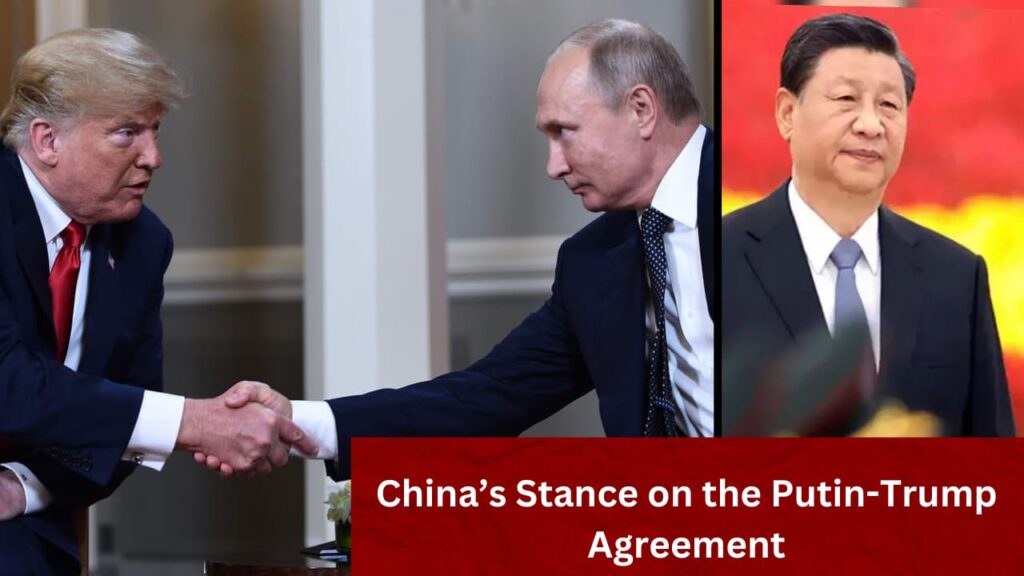
Details of the Agreement
On February 12, 2025, Trump announced a “highly productive” phone call with Putin, agreeing to begin negotiations to end the war, with talks starting in Saudi Arabia. This move, however, has excluded Ukraine from direct involvement, raising alarms in Kyiv and among European leaders, who fear a “dirty deal” without Ukraine’s input (Reuters).
China’s Position and Exclusion
China’s 12-point peace plan, released in February 2023, calls for a ceasefire and respect for territorial integrity but lacks specific implementation steps. While Chinese Foreign Minister Wang Yi has expressed support for the US-Russia consensus on peace talks (Reuters), the direct negotiations between Trump and Putin seem to bypass China’s mediation efforts, leaving Xi Jinping on the sidelines.
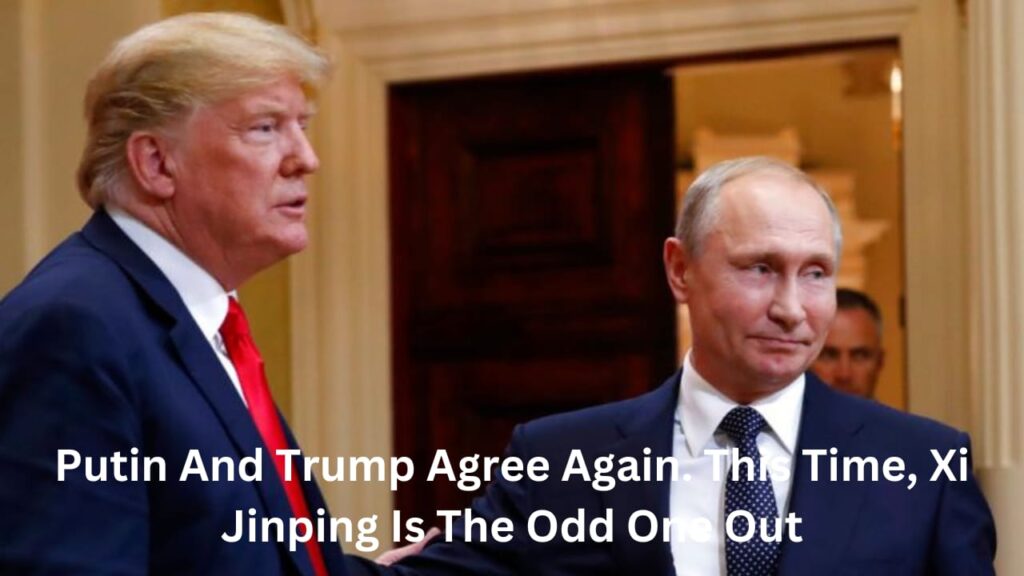
Survey Note: Comprehensive Analysis of Putin, Trump, and Xi Jinping’s Dynamics in February 2025
Introduction and Context
As of February 26, 2025, the geopolitical landscape is marked by a significant development: US President Donald Trump and Russian President Vladimir Putin have agreed to initiate direct negotiations to end the war in Ukraine, a conflict that has persisted since Russia’s full-scale invasion in February 2022. This agreement, however, has positioned Chinese President Xi Jinping as an outsider, with China’s role in mediation seemingly overlooked. This survey note delves into the details, exploring the historical context, the specifics of the agreement, China’s stance, and the broader implications, all from a US perspective.
Historical Background: The Ukraine War and International Relations
The Ukraine war, now in its third year, has seen the US, under Trump’s second term, shift towards direct engagement with Russia. Trump’s first term (2017-2021) was characterized by a complex relationship with Putin, marked by efforts to improve ties, such as approving anti-tank missile sales to Ukraine in 2019 while also withdrawing from the Intermediate-Range Nuclear Forces Treaty due to Russian violations (The Conversation). China, meanwhile, has maintained a nuanced position, supporting Russia economically while promoting itself as a peace broker, as seen in its increased trade with Russia since 2023 (Council on Foreign Relations).
China’s peace proposal, released on February 24, 2023, is a 12-point plan emphasizing respect for sovereignty, a ceasefire, and peace talks, but it has been criticized for its vagueness and lack of specific mechanisms (AP News). This plan was intended to bolster China’s image as a responsible global power, particularly among developing nations, but it was rejected by Kyiv and the West for not addressing Russia’s withdrawal (Carnegie Endowment).
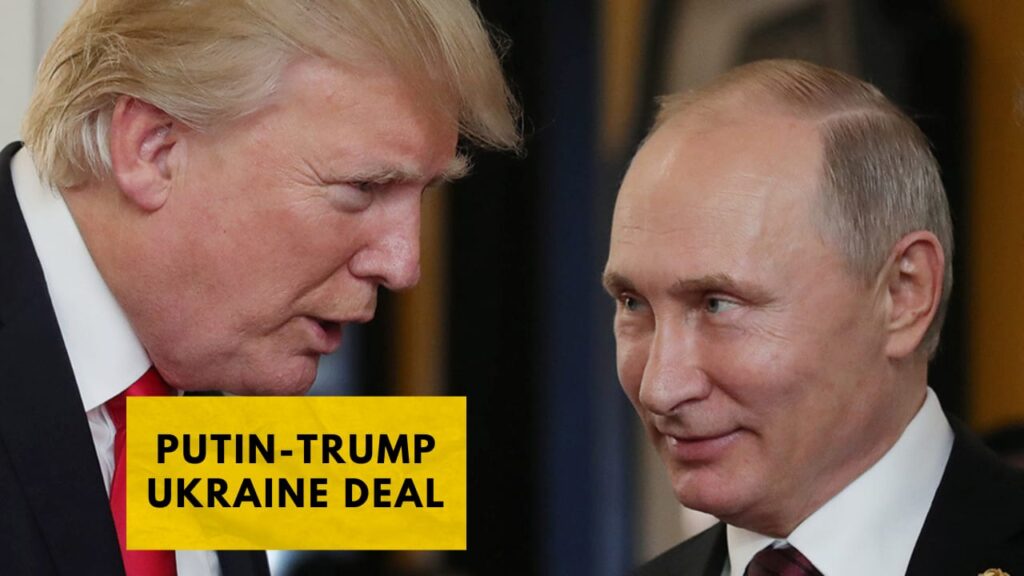
Details of the Trump-Putin Agreement
On February 12, 2025, Trump announced a “highly productive” phone call with Putin, ordering top US officials to begin talks on ending the Ukraine war, with negotiations commencing in Saudi Arabia (Reuters). The agreement aims for a ceasefire, potentially involving Ukraine ceding territory, a point that has alarmed Kyiv and European allies. European Foreign Policy Chief Kaja Kallas denounced this as a “dirty deal,” emphasizing the need for Ukraine’s inclusion (Reuters). This exclusion has sparked controversy, with Ukrainian President Volodymyr Zelenskyy demanding involvement, highlighting the tension between rapid peace efforts and national sovereignty.
China’s Position and Why Xi Is the “Odd One Out”
China’s reaction to the Trump-Putin agreement has been mixed. On February 20, 2025, Foreign Minister Wang Yi stated that China “supports all efforts conducive to peace, including the recent consensus reached between the United States and Russia,” but did not reiterate the need for Ukraine’s involvement, a point he made earlier at the Munich Security Conference (The Guardian). This suggests a diplomatic balancing act, as China has previously proposed hosting a summit between Trump and Putin to facilitate peacekeeping, a proposal raised through intermediaries but met with no official comment from Beijing (Reuters).
The “odd one out” status for Xi Jinping stems from the perception that China’s mediation efforts are being bypassed. Analysts note that Beijing fears the US-Russia talks could undermine its “no-limits” partnership with Russia, especially as Trump has hinted at leveraging China in peace efforts, a role China seems reluctant to fully embrace given its economic ties with Russia (CNN). This dynamic is unexpected, as it reveals a potential rift in the Sino-Russian alliance, with China caught between supporting peace talks and maintaining its strategic partnership.
Geopolitical Implications
The agreement and China’s exclusion have significant implications:
- US-Russia Relations: A successful negotiation could lead to a thaw, potentially reshaping global power dynamics, but it risks alienating European allies and Ukraine, as seen in the strong reactions from European diplomats (CNN).
- China’s Role: China may need to reassess its international mediation strategy, particularly in conflicts where it has economic stakes, potentially pushing it closer to Europe to counterbalance US-Russia moves (Reuters).
- European Unity: The EU faces challenges in maintaining a unified stance, with some members possibly favoring a quick fix, while others, like Poland and the Baltic states, may resist any deal that weakens NATO’s position.
- Ukrainian Sovereignty: The outcome will be crucial for Ukraine, with Zelenskyy pushing for security guarantees and military support to ensure “peace through strength,” a stance that contrasts with the potential territorial concessions in the US-Russia talks (CSIS).
Conclusion
The agreement between Trump and Putin to negotiate an end to the Ukraine war, while leaving Xi Jinping’s China on the periphery, marks a pivotal moment. It highlights the complex interplay of power, with potential shifts in alliances and the risk of alienating key stakeholders. As negotiations proceed, the international community will watch closely, particularly for how China adapts and whether Ukraine’s voice is heard.
Table: Key Players and Their Stances on Ukraine Peace Talks
| Player | Position | Recent Actions |
|---|---|---|
| Donald Trump (US) | Advocates for quick resolution, direct talks with Putin, potential territorial compromises | Ordered talks to begin on February 12, 2025, excluded Ukraine from initial discussions |
| Vladimir Putin (Russia) | Seeks ceasefire, possibly retaining occupied territories, open to US dialogue | Engaged in phone call with Trump, expressed desire for peace, demanded neutrality for Ukraine |
| Xi Jinping (China) | Supports peace talks, proposed mediation, but feels role diminished | Expressed support for US-Russia consensus, proposed summit, increased engagement with Europe |
This table summarizes the positions and actions, providing a clear overview for readers to understand the dynamics at play.
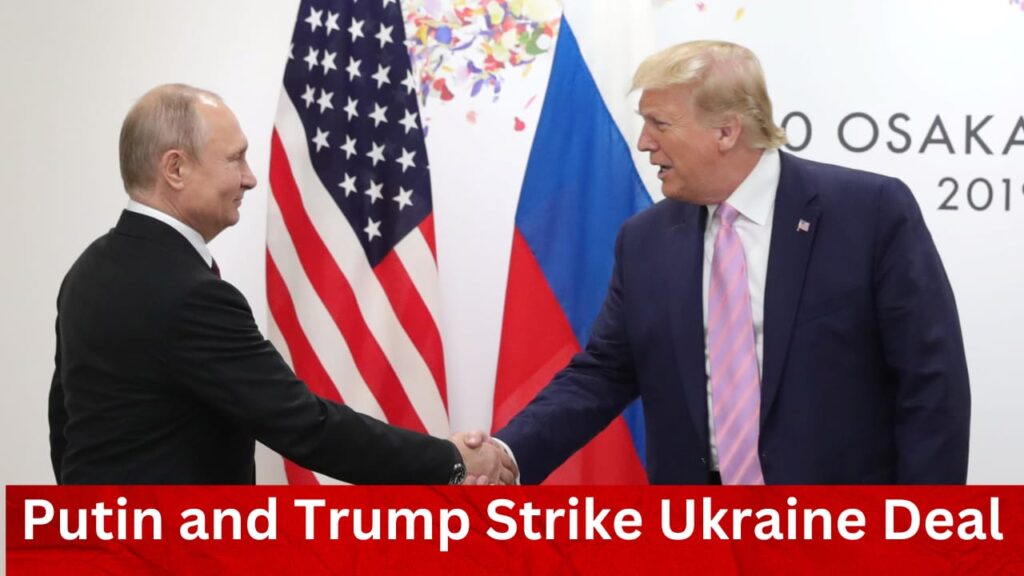
FAQ: Putin, Trump, and Xi Jinping – Ukraine Deal February 2025
1. What Did Putin and Trump Agree on in February 2025?
In February 2025, US President Donald Trump and Russian President Vladimir Putin agreed to start negotiations to end the Ukraine war, with talks kicking off in Saudi Arabia on February 12. The deal focuses on a ceasefire, potentially involving territorial concessions, but excludes Ukraine from direct participation, sparking global debate.
2. Why Is Xi Jinping the “Odd One Out” in the Putin-Trump Ukraine Deal?
Xi Jinping is considered the “odd one out” because the direct US-Russia talks bypass China’s mediation efforts, despite its “no-limits” partnership with Russia and its 2023 peace proposal. China’s Foreign Minister Wang Yi supported the talks, but Beijing’s diminished role has left Xi sidelined.
3. How Does the February 2025 Ukraine Deal Affect US-Russia Relations?
The agreement signals a potential thaw in US-Russia relations under Trump’s second term, focusing on pragmatic peace over ideological conflict. However, it risks straining ties with European allies and Ukraine, who fear a rushed deal favoring Russian interests.
4. What Is China’s Stance on the Putin-Trump Agreement?
China officially supports the peace talks, with Wang Yi stating on February 20, 2025, that Beijing backs efforts for peace. However, analysts suggest China is wary of losing influence over Russia and its mediation leverage, highlighting tensions in its strategic partnership.
5. Will Ukraine Be Involved in the Putin-Trump Peace Talks?
As of February 2025, Ukraine has been excluded from initial negotiations, prompting criticism from President Volodymyr Zelenskyy and European leaders. Trump has promised Kyiv’s eventual inclusion, but no concrete timeline has been set, raising sovereignty concerns.
6. How Might Xi Jinping Respond to Being Excluded from the Ukraine Deal?
Xi could pivot to strengthen ties with Europe or the Global South, leveraging reconstruction opportunities in Ukraine. Alternatively, China may deepen its economic support for Russia to maintain its alliance, countering any US-Russia alignment shifts.
7. What Are the Global Implications of the Putin-Trump Deal in February 2025?
The deal could reshape global alliances, potentially weakening NATO unity, shifting US focus to China, and altering energy markets if Russian sanctions ease. Xi’s exclusion might also push China to rethink its peacemaker role amid rising US-Russia dialogue.
Key Citations
- What do we know about the Putin-Trump relationship Reuters
- Trump says he has spoken to Putin and agreed to negotiate Ukraine ceasefire The Guardian
- China calls for all stakeholders in Ukraine war to be in peace process Reuters
- Trump says Putin and Zelenskiy want peace; phone calls kick off talks to end Ukraine war Reuters
- China proposes Putin-Trump summit to end Ukraine war, WSJ reports Reuters
- What is China’s peace proposal for Ukraine War AP News
- Inside China’s Peace Plan for Ukraine Carnegie Endowment for International Peace
- China backs Trump’s Ukraine peace bid at G20 as US allies rally behind Zelenskiy Reuters
- Analysis: Trump’s rush for a deal with Putin leaves Ukraine and Europe scrambling CNN Politics
- China’s hopes to be Ukraine peacemaker collide with its goals on Trump, trade Reuters
- Can Trump Persuade Putin to Make Peace in Ukraine CSIS
- Ukraine war briefing: China lauds Trump’s Russia peace talks The Guardian
- Trump promises Kyiv involvement in peace talks with Russia Reuters
- Analysis: What China fears most about Trump’s turn toward Russia CNN
- China reacts to Trump and Putin’s Ukraine war talks Newsweek
- Russia, Ukraine, and Ukraine: October 2024 Council on Foreign Relations
- Trump’s move to closer ties with Russia does not mean betrayal of Ukraine, yet – in his first term, Trump was pretty tough on Putin The Conversation
- In Rare Criticism, Trump Says Putin Is ‘Destroying Russia’ The New York Times
- Foreign Ministry Spokesperson Guo Jiakun’s Regular Press Conference on February 18, 2025 Ministry of Foreign Affairs of the People’s Republic
#PutinTrumpDeal2025, #UkrainePeaceTalksFebruary2025, #XiJinpingExcluded, #TrumpPutinUkraineAgreement, #ChinaRussiaRelations2025, #GeopoliticsFebruary2025,
#USRussiaThaw, #UkraineWarNegotiations, #XiJinpingOddOneOut, #GlobalPowerShift2025,
